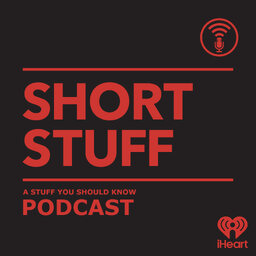Selects: How Empathy Works
Empathy can often be confused with sympathy and regular old compassion. But it's not exactly either one of those. Some say a lack of empathy can indicate sociopathic tendencies, but that's not always true either. So what is empathy and what makes someone prone to empathize? Listen in to this classic episode to find out.
Learn more about your ad-choices at https://www.iheartpodcastnetwork.com
 Stuff You Should Know
Stuff You Should Know


